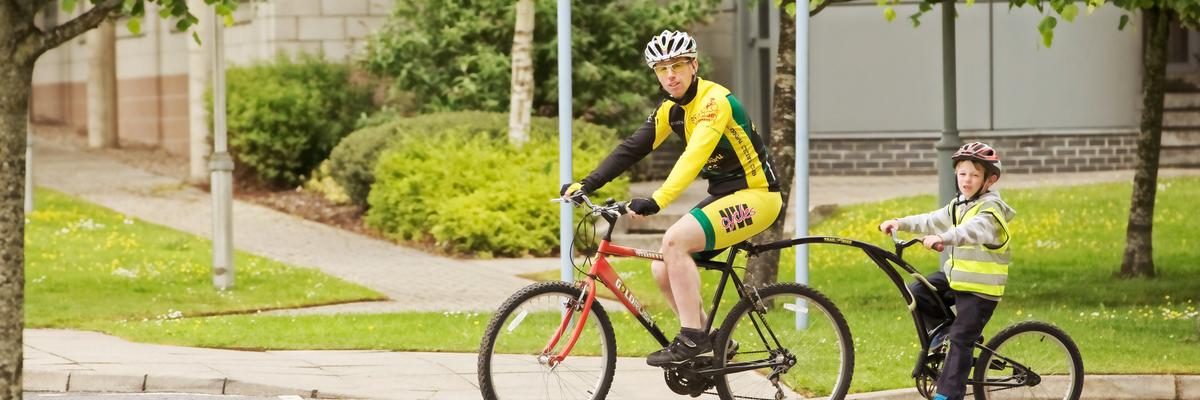Commentary
Andrew Kythreotis
21 October 2022
The release of the House of Lords report on climate change and (individual) behaviour on 12 October 2022 demonstrates the turbulent times we have ahead in developing more effective and collective place-based climate action.
The report, which is nearly 140 pages in length, delivers key messages that dovetail with the ideals and tenets of place-based climate action. These include instilling individual and organisational behaviour change to meet net zero targets; ramping up business and civil society climate action; instilling greater climate leadership and co-ordination across all levels of society; and the current government having a more clear, positive vision and narrative that enables individuals to act on climate change.
The House of Lords report is backed up by sound science and theory, a refreshing change from the era of global post-truth and territorial sovereignty politics that has systematically terrorised recent international climate negotiations. But the report also illuminates the systemic problems regarding how UK society, as individuals, as households, as government and policymakers, as businesses, community groups and others can act collectively on climate change to become net-zero and climate resilient by 2050.
Regression in climate policy
Taking the parliamentary politics of climate change as an example, we are witnessing a House of Commons, where the real policy decisions are made, being led by a Conservative government serving up, at the very least, inconsistencies in climate policy strategy, and at the very worst, a serial UK-wide regression in climate policy progress. This was exemplified by the government decision under Liz Truss to reverse the moratorium on the ban on fracking, and the contentious parliamentary vote on 19 October, where MPs voted by 326 to 230 against introducing a ban on fracking for shale gas. Such political decisions are in direct contradiction to what some local PCAN climate commissions, like Lincoln, are trying to act against locally.
The House of Lords report quite rightly positions ‘behaviour’ as a key factor in helping the UK attain its climate goals. Significantly, if we change our behaviour and actions regarding saving carbon, this has ‘spill over’ benefits in other areas, like health and reducing (regional) inequalities. It is difficult to argue against the idea that behaviour change, in addition to technology development and increased government investment, is needed at different levels of society to get to a net zero and well-adapted society more quickly. But affecting behaviour change should not solely be reserved to us as individual citizens.
Whose behaviour counts?
Behaviour change must also emanate from the higher echelons of society – those with a larger mouthpiece to augment change – as a matter of moral disposition that supersedes just mere environmental benefit. The recent advice to King Charles III from Liz Truss that he should not attend COP27 in the UAE next month, is an example of government behaviour that does little to dispel the idea that our current government does not prioritise the transformational changes needed to reach net zero and a well-adapted society in the timescale needed, despite some senior cabinet politicians recent claims of support for net zero. With Prime Minister Truss now having stood down, there is an opportunity to reset this.
This brings us squarely back to the question of whose behaviour counts. The House of Lords report tells us that civil society, local authorities, businesses, devolved governments and the UK Government all have key roles in this, and it outlines these succinctly and sensibly. Place-based climate action plays a significant part in helping to translate the behaviours of individuals, the public, and private community sectors into meaningful local actions through local governance conduits like climate commissions, who can work with, as well as advise and scrutinise local authority climate policy.
National-local disconnect
The actions of local authorities, who, from my personal experience, have welcomed the recent creation of climate commissions across the UK as a supporting network for instilling greater place-based climate action, are severely handicapped when inconsistent national policy decisions on climate and energy circumscribe local efforts to work with commissions, local businesses, and communities. There is certainly a disconnect between national climate policy decisions and what local authorities would like to implement locally.
Whoever picks up the reins from Liz Truss, the current UK government needs to understand that the need for behaviour change is engrained within the mantra of what constitutes place-based climate action. It is such a pity that some of our key politicians cannot act in accordance with this mantra by making the necessary decisions to enable place-based climate action to thrive, not hinder or stunt it.
Call to new Prime Minister
Such a step change will not only help relieve the many institutional, economic and policy responsibilities the government has regarding climate policy action but will create a fairer society for everyone to act on climate change in their own diverse, but meaningful ways. While the behaviour of every citizen certainly counts in engendering greater place-based climate action, it is the behaviour of our government and politicians through their policy decisions that must be more forensically scrutinised as a first port of call.
These are the decisions that allow our own behaviour and (place-based) actions over climate change to reach their fullest potential. The new Prime Minister needs to recognise this if the Lords’ report, which recognises that behaviour change is in our hands, is to have meaningful impact.
Andrew Kythreotis is a Senior Lecturer in the Dept of Geography at the University of Lincoln and a founding member of Lincoln Climate Commission

